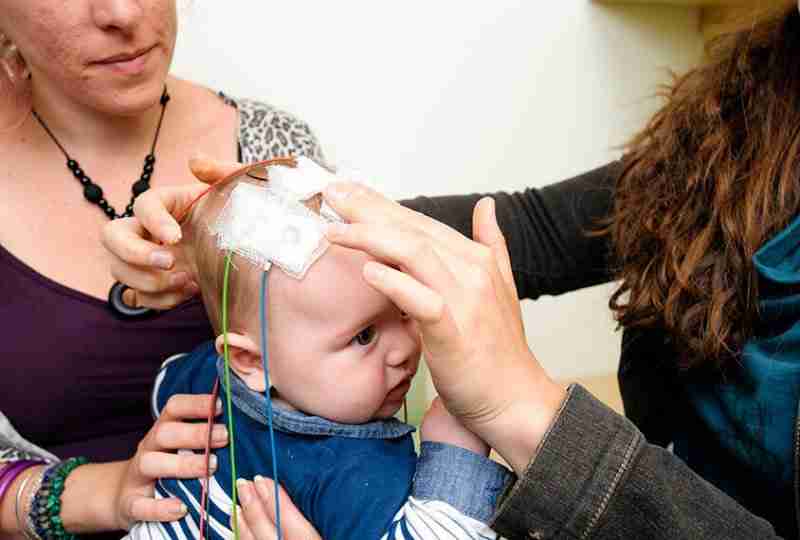[B]abies who have unusually high or low synchrony between certain brain waves — as measured by electroencephalography (EEG) — at 3 months old tend to score high on a standardized scale of autism-linked behaviors when they are 18 months old. These levels of synchrony reflect underlying patterns of connectivity in the brain.
The findings suggest that EEG could help clinicians identify autistic babies long before these children show behaviors flagged by standard diagnostic tests.
The work “reinforces the concept and the truism that brain development is affected before autism diagnoses are made,” says lead researcher Shafali Spurling Jeste, associate professor of psychiatry and neurology at the University of California, Los Angeles. “We believe that we could work to start rewiring the brain if we intervene effectively and early enough. That message, quite simply, is a very important one.”
Further work remains before EEG measurements could become part of an infant’s routine visits to the pediatrician, Jeste says, in part because her team observed differences between groups of children but not at the individual level.
“We are not at the point where we recommend using EEG as a clinical screening tool for autism,” Jeste says.
To build upon this work, Jeste’s team plans to study other children who have an elevated likelihood of autism due to factors such as preterm birth or specific genetic variants.



































